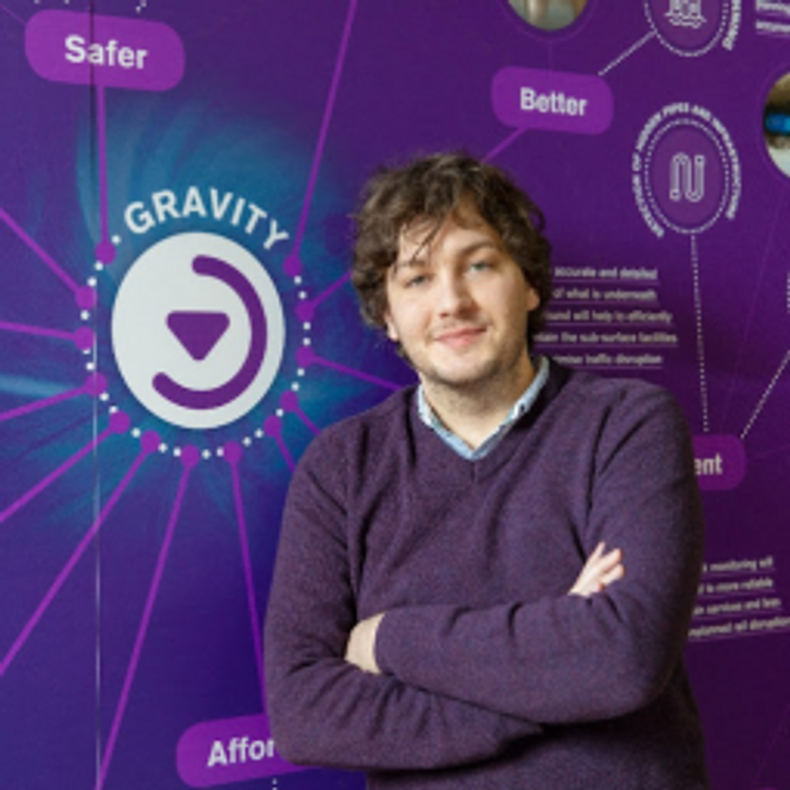£1.5m raised to develop underground space mapping technology

A new University of Birmingham spinout, Delta g, has raised £1.5 million in its pre-seed investment round to fast-track the commercial availability of its ground-breaking quantum technology gravity gradiometry sensors for mapping the underground space.
The company was founded by Professor Michael Holynski, Dr Andrew Lamb and Jonathan Winch, and is led by CEO Pete Stirling, and is based on technology developed at the University of Birmingham, as part of the UK Quantum Technology Hub for Sensors and Timing.
This aims to transform the efficiency of major infrastructure and repair projects by mapping complex unseen locations quickly, accurately, and without the need for disruptive excavations.
The company 's work will build on extensive research into gravity gradiometry carried out over the past decade at Birmingham, through collaboration between Professor Holynski and Professor Kai Bongs of the School of Physics and Astronomy, and Professor Nicole Metje of the School of Engineering, bringing together an interdisciplinary team of physicists and engineers, working closely with end users such as RSK.
This culminated in the world's first field demonstration of a practical quantum sensor for gravity gradiometry, realising the detection of underground infrastructure.
The funding round was led by Science Creates Ventures, with further investment from Quantum Exponential Group, Newable Ventures, Bristol Private Equity Club, as well as several angel investors, including Hitesh Thakrar and Howard Covington.
Delta g is leading the way in developing the technology, which has been lauded by academics and highlighted as a key strength of the UK Quantum Technology Programme by policymakers thanks to its widespread potential benefits across industries such as construction and utilities.
Delta g uses gravity gradiometry to measure subtle changes in the pulling strength of gravitational fields when clouds of atoms are dropped. The bigger the object and the greater the difference in density of the object from its surroundings, the stronger the measurable difference in pull.
In this way, Delta g 's technology turns quantum theory into commercial reality by resolving challenges such as vibration, instrument tilt and disruption from magnetic fields or thermal effects, to perform high spatial resolution surveys across even the most complex landscapes.
Delta g 's sensors are highly transportable and inherently immune to vibrational noise, driving down the financial cost of surveys and enabling more rapid measurements with greater sensitivity.
The company will use its new funding to embark on real-world trials with major industrial clients to demonstrate the efficacy of its approach and to further commercialise its technology, reducing the size, weight, power and cost of its hardware so that it can be deployed at scale in the field.
Pete Stirling, co-founder and CEO at Delta g, said: “The UK would massively benefit from delivering major infrastructure projects on time and on budget, and through increased productivity by reducing the time it takes to bring such projects to the point of benefitting people.
“A big part of this is the difficulty found in mapping the complex unseen environments and hidden critical infrastructure that resides under the ground.
“Considerable budgets are allocated to ensure that unexpected obstacles can be overcome. On HS2 alone, the contingency for unforeseen ground conditions is £248m. ”
Michael Holynski (pictured), Professor of Quantum Sensing at the University of Birmingham, a founder of Delta g and PI of the UK Quantum Technology Hub in Sensors and Timing, said: “It 's exciting to see this investment in quantum sensing, which will be used to strive for new tools that aim to bring benefits to applications across civil engineering. ”
In addition to its latest funding round, Delta g has been awarded a c. £500,000 innovation grant from Innovate UK to accelerate the delivery of a commercial product and begin the development of a sector-agonistic gravity gradient platform.
